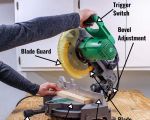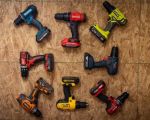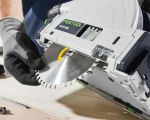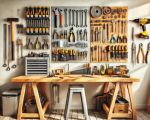Best Air Compressors for Home Garages: Top Picks for DIY Projects
- 1 - Why an Air Compressor is Essential for Your Garage
- 2 - Key Features to Look for in an Air Compressor
- 3 - Top Air Compressors for Home Garages
- 4 - How to Maintain Your Air Compressor
- 5 - How to Choose the Right Air Compressor for Your Needs
- 6 - Real-Life Examples: Air Compressor Uses in DIY Projects
1 - Why an Air Compressor is Essential for Your Garage
Whether you're a hobbyist or a serious DIYer, having the best air compressor for your home garage can make a world of difference. Air compressors are versatile tools that can power a variety of devices such as pneumatic tools, spray guns, and even inflating tires. They are essential for any garage where DIY projects or auto repairs are a common occurrence.
Imagine you are working on a car restoration project or trying to tackle a large woodworking project. An air compressor allows you to easily power tools like impact wrenches, sanders, and spray guns, enabling you to finish jobs faster and with better precision. With the right air compressor, you'll save time, effort, and energy, making it an indispensable part of your home garage setup.
2 - Key Features to Look for in an Air Compressor
When shopping for the best air compressors for home garages, it’s important to consider several key features to ensure you're getting a model that suits your needs. Here are some factors to keep in mind:
- Tank Size: Larger tanks hold more air and can power tools for longer periods without needing to cycle as often. For most home garage uses, a tank size of 20-30 gallons is sufficient.
- CFM (Cubic Feet per Minute): CFM measures how much air the compressor can deliver at a given pressure. A higher CFM is necessary for demanding tools such as spray guns or pneumatic drills.
- PSI (Pounds per Square Inch): PSI indicates the maximum pressure that the air compressor can generate. A higher PSI rating is important for heavy-duty tasks, such as car tire inflation or powering industrial tools.
- Oil vs. Oil-Free: Oil compressors are typically quieter and more durable, but require more maintenance. Oil-free compressors are easier to maintain but can wear out faster. Choose based on your preference for maintenance and longevity.
- Portability: Depending on your space and needs, consider the weight and mobility of the compressor. If you need to move it around the garage, look for compact, wheeled models for easy transport.
These features will ensure that you select the right air compressor that can handle your specific tasks, whether it’s painting, tire inflation, or operating power tools.
3 - Top Air Compressors for Home Garages
Now that you understand the key features to look for, let's dive into some of the best air compressors for home garages. Below are some of the top-rated models that stand out in terms of performance, reliability, and user satisfaction:
- DEWALT DXCMLA1983054 30-Gallon Air Compressor: Known for its high CFM (8.0) and 155 PSI, this oil-lubricated compressor is perfect for high-demand tasks like running impact wrenches and pneumatic tools. It’s durable, quiet, and offers a large air storage capacity.
- Makita MAC2400 Big Bore Air Compressor: Featuring a 4.2-gallon tank and 130 PSI, this oil-lubricated compressor is compact yet powerful, making it ideal for smaller garage spaces. Its quiet operation and high efficiency make it a favorite among DIYers.
- PORTER-CABLE C2002 Oil-Free Pancake Compressor: A popular choice for smaller tasks, this oil-free, 6-gallon tank compressor delivers 2.6 CFM at 90 PSI. It's lightweight, portable, and easy to use for home DIY projects like inflating tires or powering smaller tools.
- Bostitch BTFP02012 6-Gallon Pancake Compressor: This budget-friendly, oil-free compressor is ideal for beginners. It offers 2.6 CFM at 90 PSI, making it suitable for light to medium-duty tasks like framing or brad nailing.
- Craftsman CMEC6150K 6-Gallon Pancake Compressor: Known for its reliability, this portable compressor is an excellent choice for home garages. It comes with a durable, oil-free pump and delivers 2.6 CFM at 90 PSI for a variety of applications.
These air compressors offer different features and price points, ensuring that there is an option for every type of home garage setup. Whether you’re looking for power, portability, or a budget-friendly solution, you’ll find an air compressor that meets your needs.
4 - How to Maintain Your Air Compressor
Proper maintenance is key to extending the lifespan and performance of your air compressor. Here are some maintenance tips to keep in mind:
- Check Oil Levels: If you own an oil-lubricated compressor, ensure that the oil is at the proper level and changed regularly according to the manufacturer’s recommendations.
- Drain the Tank: After each use, it's important to drain the tank to remove any moisture that may have accumulated. This will help prevent rust and ensure optimal performance.
- Clean Air Filters: Dirty air filters can cause the compressor to work harder, so clean or replace the filters regularly to ensure efficient airflow.
- Inspect Hoses and Fittings: Regularly check hoses and fittings for any signs of wear or leaks. Replace damaged components immediately to avoid losing air pressure.
- Store Properly: When not in use, store your air compressor in a dry, clean place to prevent rust or damage to the internal components.
By taking these simple steps, you can extend the life of your compressor and ensure it continues to perform at its best for all your garage needs.
5 - How to Choose the Right Air Compressor for Your Needs
Choosing the best air compressor for your home garage comes down to understanding your specific needs. Are you primarily using it for small tasks like inflating tires and running basic tools? Or are you working on larger projects that require heavy-duty equipment? Here’s a breakdown to help you decide:
- For Small Tasks: If you only need to inflate tires or power small tools, a smaller, portable model with a 6-gallon tank and 2.5 CFM should be sufficient.
- For Medium Tasks: If you're using it for tasks like powering nail guns, painting, or light automotive work, a 10-20 gallon tank with a higher PSI and CFM is ideal.
- For Heavy-Duty Tasks: If you're using air tools like impact wrenches, spray guns, or need to run multiple tools simultaneously, look for a 20-30 gallon tank and higher CFM (around 6-8 CFM) and PSI (150+).
By understanding the specific requirements of your DIY projects, you can choose an air compressor that meets your needs without overspending on unnecessary features.
6 - Real-Life Examples: Air Compressor Uses in DIY Projects
Let’s look at a few real-life examples of how air compressors can make a huge difference in your DIY projects:
- Car Maintenance: One DIYer shares how their 30-gallon compressor allowed them to work on their car’s suspension, using an impact wrench to remove lug nuts and replace parts with ease.
- Woodworking: Another hobbyist shares how their air compressor powered their nail gun to help them complete a large furniture project efficiently, saving time and improving the finish.
- Home Improvement: A homeowner explains how using an air-powered spray gun allowed them to paint their entire garage in a fraction of the time it would have taken with traditional brushes or rollers.
These stories showcase the versatility and power that a good air compressor can bring to a home garage setup, proving that it’s a worthwhile investment for any DIY enthusiast.









